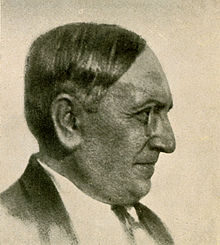Lucio D'Ambra
- View a machine-translated version of the Italian article.
- Machine translation, like DeepL or Google Translate, is a useful starting point for translations, but translators must revise errors as necessary and confirm that the translation is accurate, rather than simply copy-pasting machine-translated text into the English Wikipedia.
- Do not translate text that appears unreliable or low-quality. If possible, verify the text with references provided in the foreign-language article.
- You must provide copyright attribution in the edit summary accompanying your translation by providing an interlanguage link to the source of your translation. A model attribution edit summary is
Content in this edit is translated from the existing Italian Wikipedia article at [[:it:Lucio D'Ambra]]; see its history for attribution. - You may also add the template
{{Translated|it|Lucio D'Ambra}}to the talk page. - For more guidance, see Wikipedia:Translation.
Lucio D'Ambra | |
|---|---|
 | |
| Born | Renato Eduardo Manganella (1880-11-01)1 November 1880 Rome, Lazio, Italy |
| Died | 31 December 1939(1939-12-31) (aged 59) Rome, Lazio, Italy |
| Occupation(s) | Director Producer Screenwriter |
| Years active | 1911–1939 (film) |
Lucio D'Ambra (1880–1939) was an Italian writer and film director. Born as Renato Manganella, he wrote under the pen name of D'Ambra becoming a celebrated journalist, novelist, and film critic. A noted film enthusiast, D'Ambra became involved in the cinema in 1911 when he anonymously wrote screenplays. From 1916 he formally entered the film industry, setting up his own production company and directing more than twenty films. His silent comedies drew comparisons to the films of his German contemporary Ernst Lubitsch. In 1922 D'Ambra's company was absorbed into the conglomerate Unione Cinematografica Italiana and he retired from regular filmmaking although he occasionally produced further screenplays. In 1937 he published his memoirs, recounting his time working in Italy's early film industry.[1]
Selected filmography
Director
- The Illustrious Actress Cicala Formica (1920)
Screenwriter
- Il bacio di Cirano (1913)
- The Thirteenth Man (1917)
- Nemesis (1920)
- On with the Motley (1920)
- Take Care of Amelia (1925)
- Giuseppe Verdi (1938)
- First Love (1941)
References
- ^ Marrone p.470
Bibliography
- Marrone, Gaetana. Encyclopedia of Italian Literary Studies: A-J. Taylor & Francis,
External links
- Works by or about Lucio D'Ambra at Internet Archive
- Lucio D'Ambra at IMDb
- v
- t
- e










